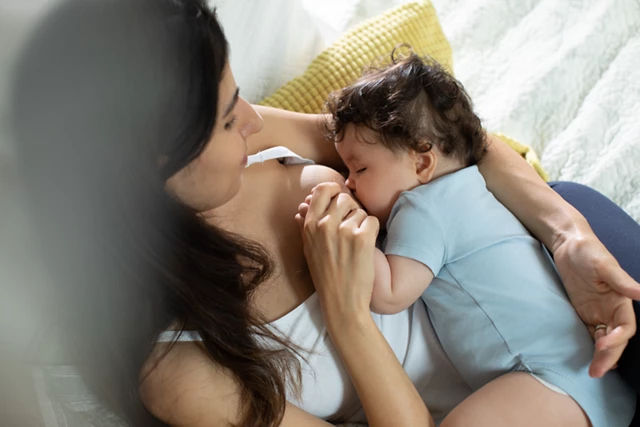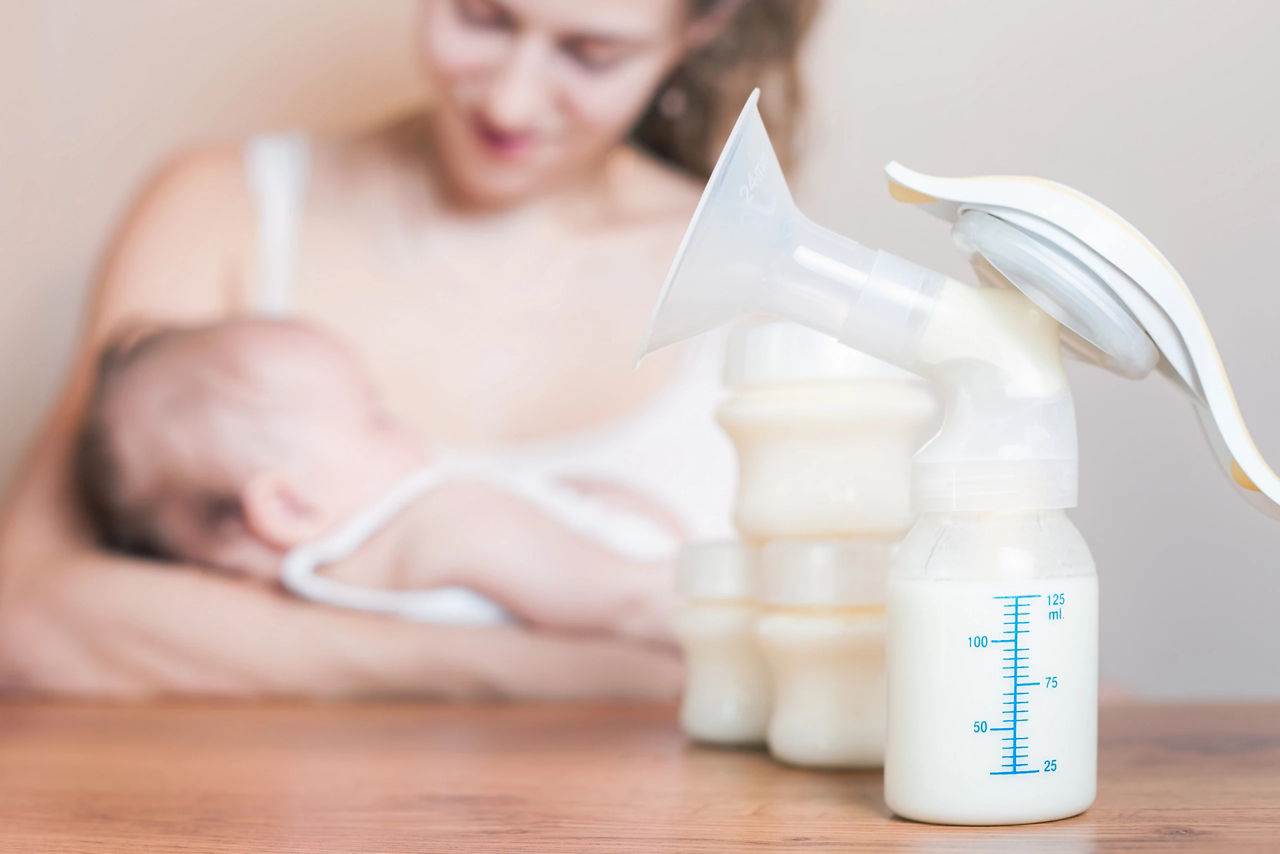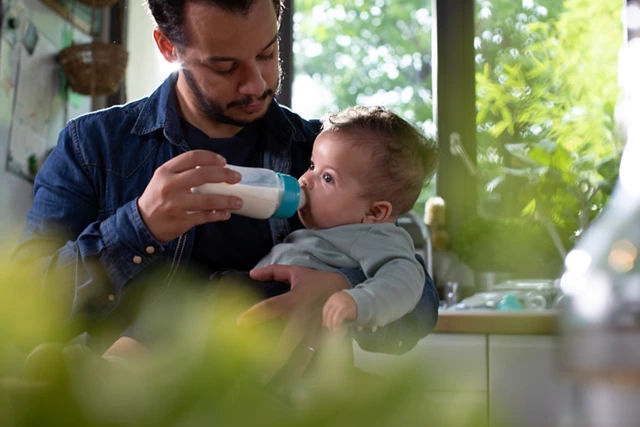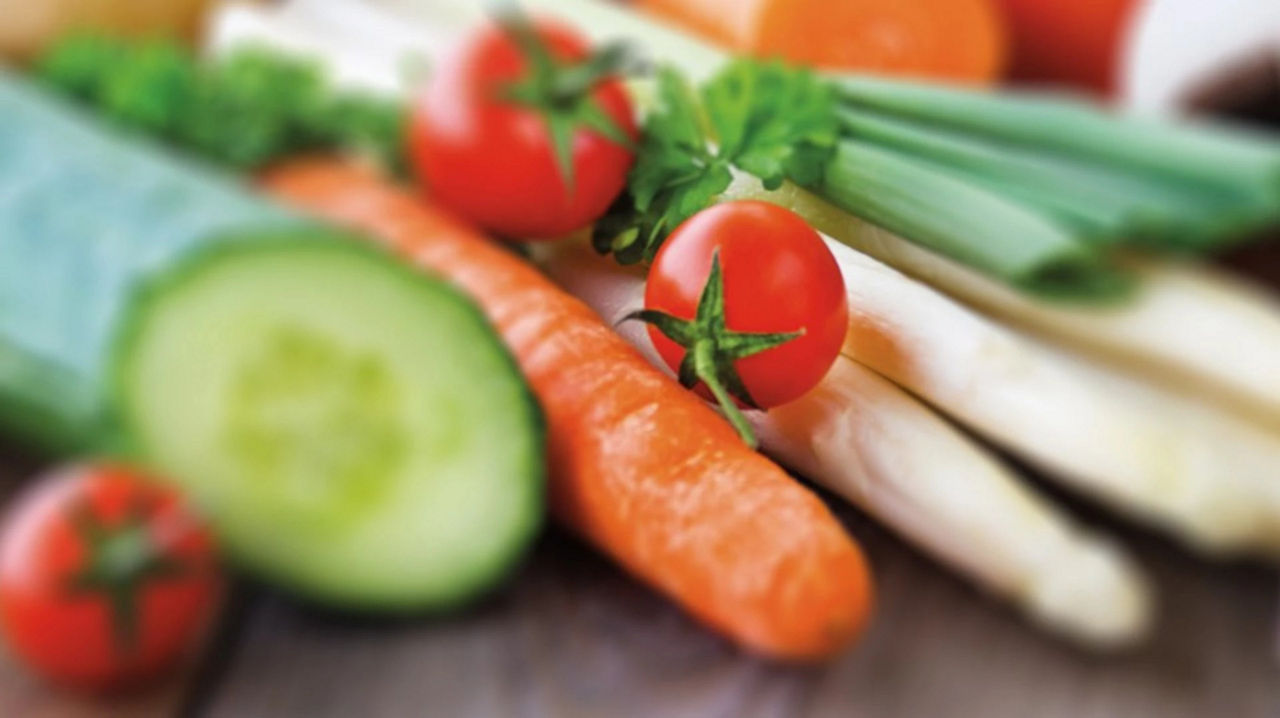From smiling and grasping things to making all sorts of new noises, your clever 1-month-old baby is becoming more alert by the day. As breastfeeding provides all the nutrition they need to support this development, your diet remains as important as ever.
Your baby’s development at 1 month old
Getting along famously
Your baby's first month
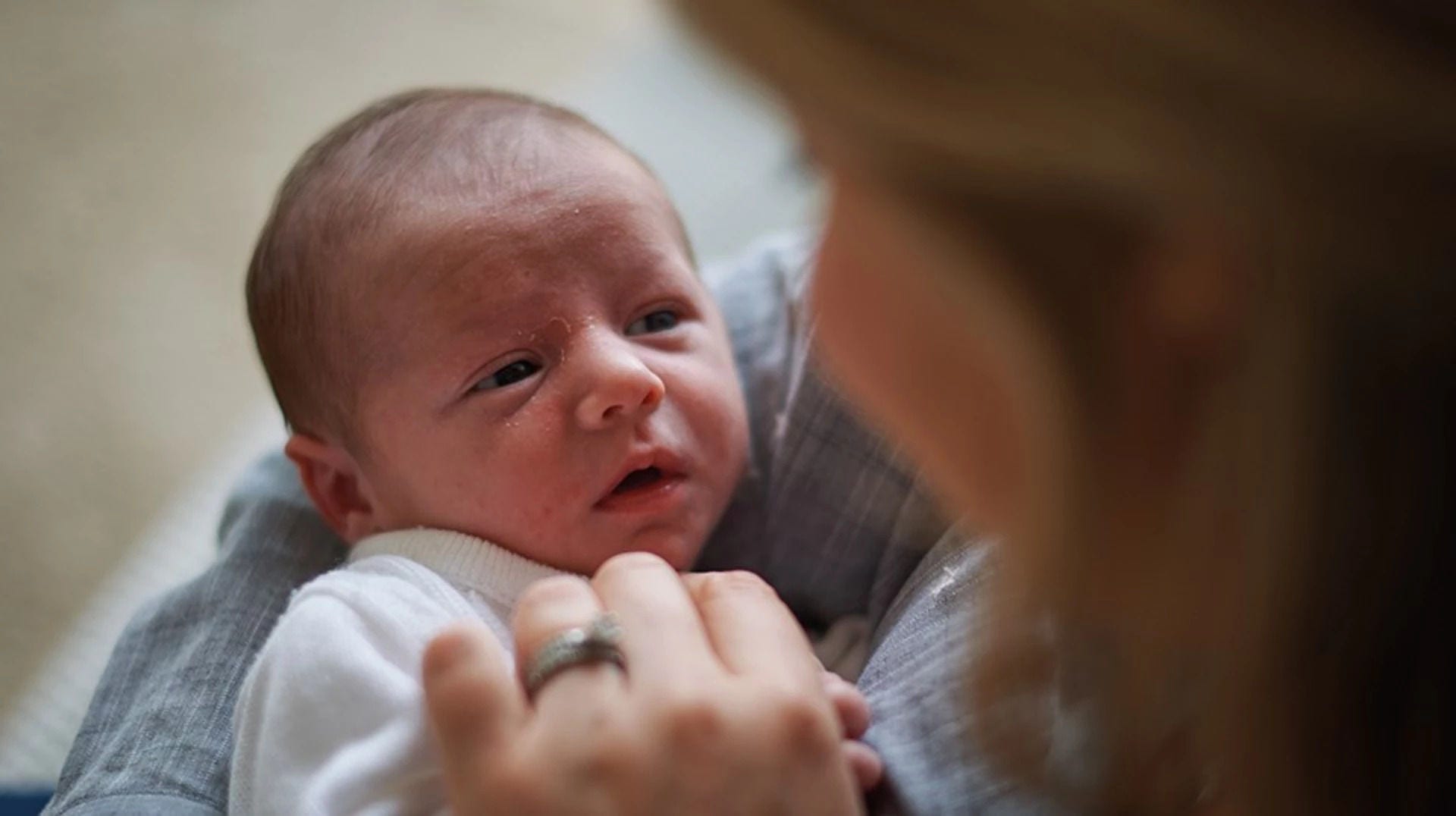
What's been happening in their first month of development?
Over the last 4 weeks, you may have noticed some considerable changes, not only in your baby’s appearance but in their response to their surroundings too. They may have started to react to every day sounds like the doorbell or your phone ringing. These are good signs that they are growing physically and mentally.
Muscle development at 1 month
As your baby develops, their muscles will become stronger. Around this time most babies will still struggle to lift their head, but as their neck and upper body strength improves, they'll learn to lift it slightly when lying on their tummy, progressing to propping themselves up on their arms, holding their heads up, and looking around.
The natural grasp reflex they were born with is strengthening too and their hands will automatically grip anything you put into their palm1.
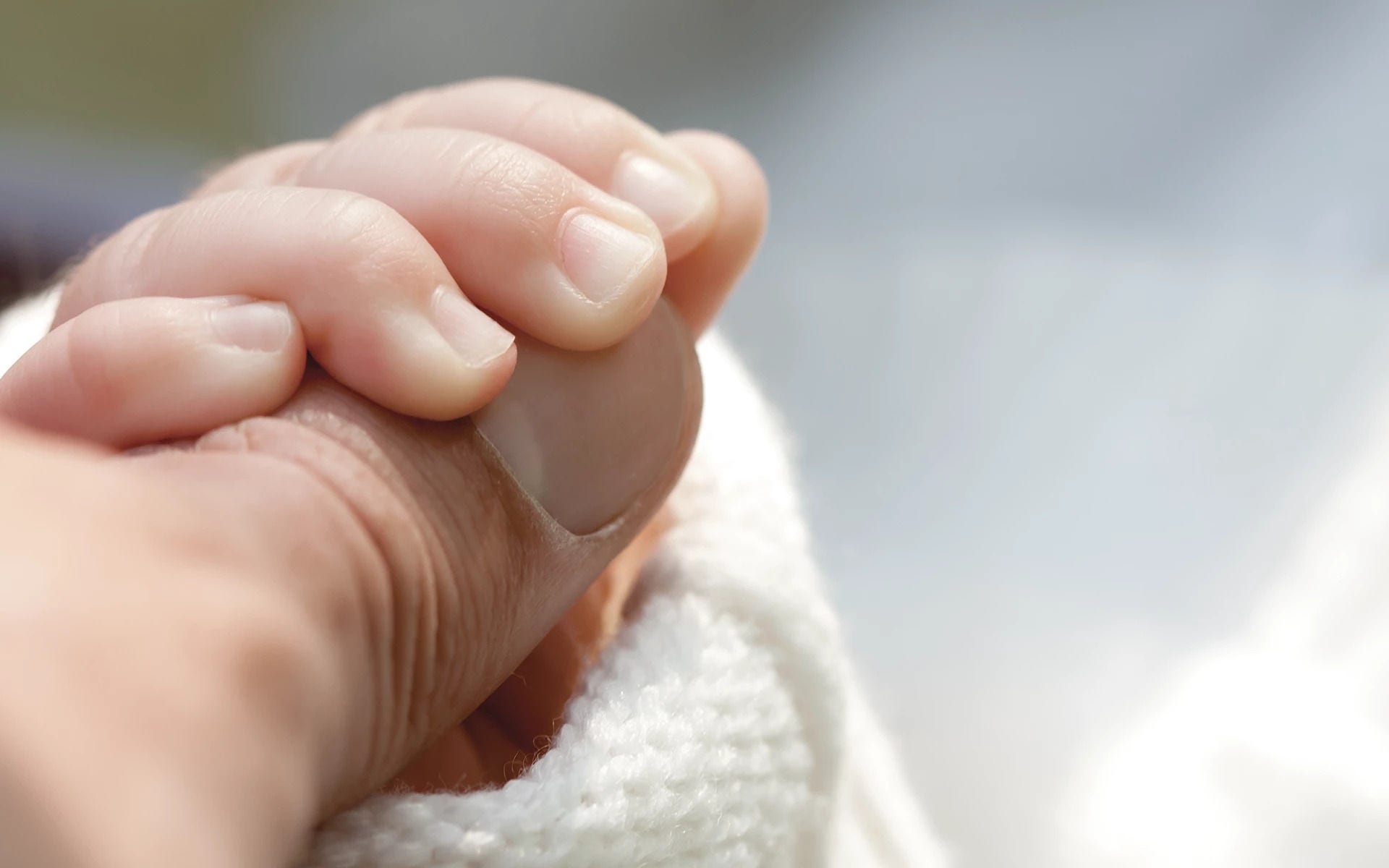 Your baby will happily grab hold of anything you put in their palm
Your baby will happily grab hold of anything you put in their palm
If your baby isn’t smiling yet, it doesn’t mean they are unhappy.
Their first real smiles
Even at this young age, some babies can smile! You can tell that it is real if they use their whole face, and their eyes light up. Your baby will smile when they are ready, but you can encourage them through tickling, cuddling and play. They will learn by copying you, so be sure to smile a lot.
Your baby’s developing eyesight
Newborn babies are nearsighted, which means they can only see blurry shapes – at birth they can only see about 8 to 12 inches away. While still limited, your 1-month-old baby’s visual skills are improving. You may notice their eyes darting around a lot. This is because they haven’t learnt how to focus them yet. However, they will be drawn to moving objects and human faces, especially yours, which is about as far as they can see.
LCPs – food for thought
The Department of Health and World Health Organisation (WHO) recommend exclusive breastfeeding for the first six months of life1. If you are breastfeeding, your baby will get all the nutrients they need to develop for the first six months of life directly from your breast milk. That is why your diet is so important.
Research shows that two long chain polyunsaturated acids (LCPs) in particular – AA (Omega 6) and DHA (Omega 3), found naturally in breast milk – are important for the development of a baby’s brain, eyes and nervous system1. Eating more LCP-rich foods, like salmon, mackerel, sardines and tuna, can encourage better visual and brain development and movement skills.
Drinking 2 litres, or six–eight glasses of water a day will help your production of breast milk.
The beauty of bonding
Skin-to-skin contact is a great way to strengthen the emotional bond between you. It also helps to regulate your baby’s heart rate and temperature. Your 1-month-old baby will love physical contact with you, so massage, cuddles and gently moving their arms and legs are good ways to soothe them. It’s useful to remember that not all babies develop at the same rate, and there’s a wide range of what’s considered ’normal’.
Your baby may be ahead in some areas and slightly behind in others but if you’re worried about specific delays, talk to your baby's healthcare professional to put your mind at ease.
Breastfeeding or rocking your baby gently can help them feel comforted.
Next steps
Add these items to your shopping list:
- Salmon, mackerel, sardines or tuna
Try these LCP-rich recipes from BBC Good Food:
related articles
Learn more about your baby

Need some help?
You can get quick answers to common questions in our FAQs.
Alternatively, if you need help with general pregnancy or baby advice, or maybe on using or ordering our products - our expert team are always on hand to talk about feeding your baby.
- WHO. Breastfeeding [Online]. Available at: www.who.int/topics/breastfeeding/en/ [Accessed April 2014]
Last reviewed: 13th August 2014
Reviewed by Nutricia’s Medical and Scientific Affairs Team

